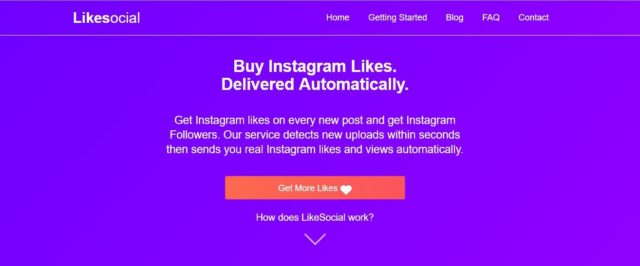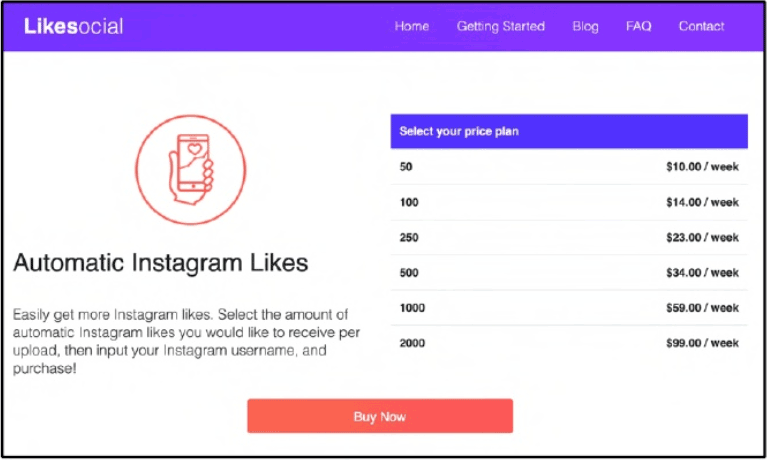Instagram is cracking down on ‘inauthentic behaviour‘ by filing a lawsuit against a New Zealand company that sells fake engagement to make users appear popular.
Facebook/Instagram is accusing Social Media Series Limited – and owners Arend Nollen, Leon Hedges, and David Pasanen – of violating its Terms of Service and California’s Computer Fraud and Abuse Act.
Jessica Romero, Facebook’s Director of Platform Enforcement and Litigation, says ‘inauthentic activity has no place’ on Instagram and its ‘sending a message that this kind of fraudulent activity is not tolerated’ by taking the three Kiwis to court.
According to the lawsuit, since July 2015 Social Media Series Limited has operated three sites selling fake likes, views, and followers to Instagram users. The most recent is Likesocial.co.
Instagram has become a marketing platform where popular users, ‘the influencers’, are paid to promote products and services by posting pictures to their ‘authentic’ and ‘engaged’ audience.
It’s a fiercely competitive popularity contest. An Instagram influencer has greater value based on how many times a post is liked, the amount of followers they have, and to some degree their ability to create meaningful and valuable content.
Instagram is also a powerful marketing tool for professional photographers, with some photographers putting significant effort into the platform to score new clients.
It’s not easy to build and retain an authentic audience. But there’s many deceitful shortcuts to success, such as paying a company like Social Media Series Limited to use an army of bots to engage with an account.
‘Defendants used a network of bots and Instagram accounts that they controlled to deliver millions of automated likes to their customers,’ the lawsuit claims. ‘Some of the Instagram accounts controlled by Defendants were responsible for tens of thousands of likes on a daily basis.’
This fake popularity allows the user to build a real following, as ordinary folk are duped to believe the online adoration is from them posting engaging pictures. It also tricks the Instagram algorithm, which responds to engagement, into making the picture a ‘top post’ and creates another organic audience stream.
Alternatively, the user could simply scam a brand into a paid partnership by framing the fake engagement as authentic.
‘Through their business, Defendants interfered and continue to interfere with Instagram’s service, create an inauthentic experience for Instagram users, and attempt to fraudulently influence Instagram users for their own enrichment,’ the lawsuit says.
For US$10 per week a user could buy 50 likes per post, or 2000 likes for US$99.
Despite it being frowned upon and embarrassing (if caught) to buy a fake following, the problem is rampant and business is booming. The lawsuit claims the defendants ‘unjustly enriched themselves’ US$9.43 million since July 2018.
To make matters worse for Zuckerberg, the self-made billionaire, not only is he cut out of the transaction, but the business competes with Instagram’s ‘Sponsored Post’ feature.
Instagram is seeking US$9.43 million from the Kiwis for violating its Terms of Service. The Likesocial website has already gone offline. But there’s thousands of other fake like factories out there for the vapid Instagrammers seeking fame and fortune.
Instagram is taking various other measures to reduce inauthentic activity, such as deleting accounts that are identified as bots.





Be First to Comment